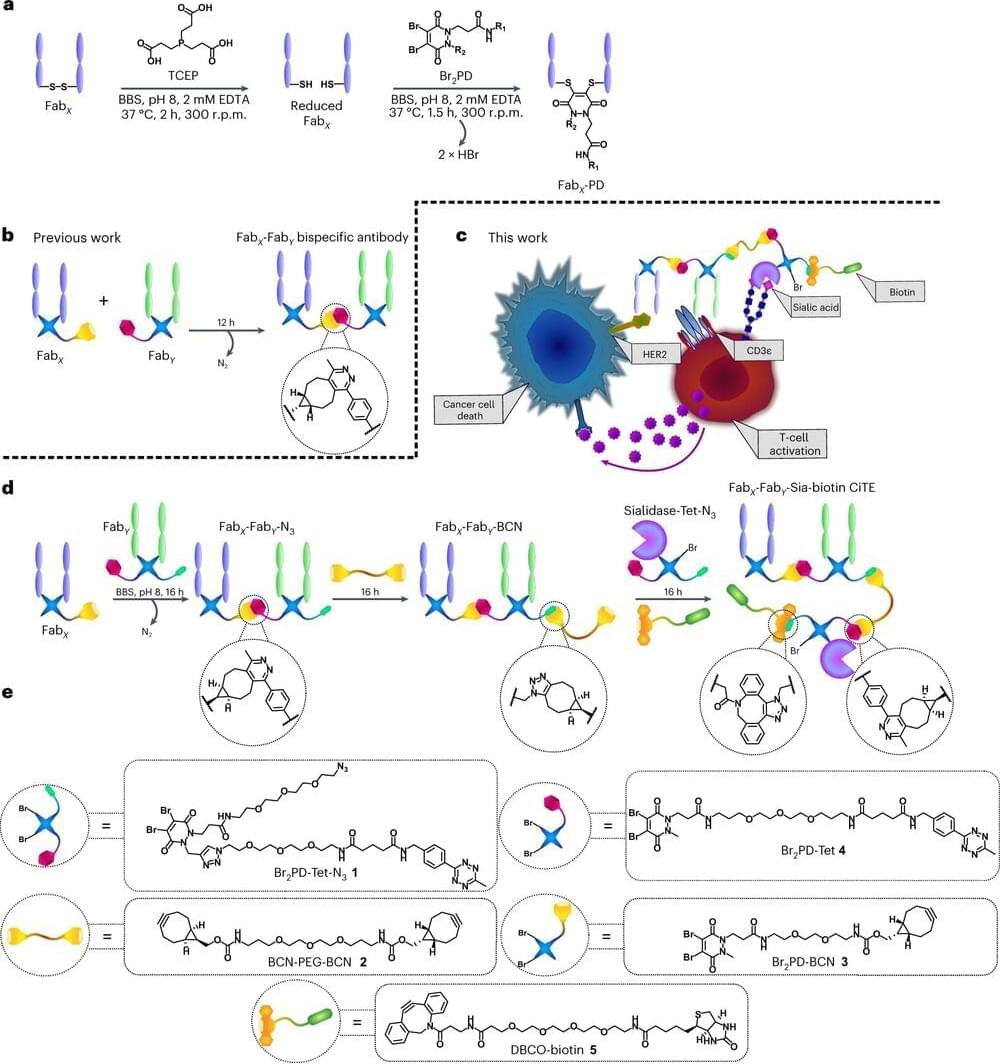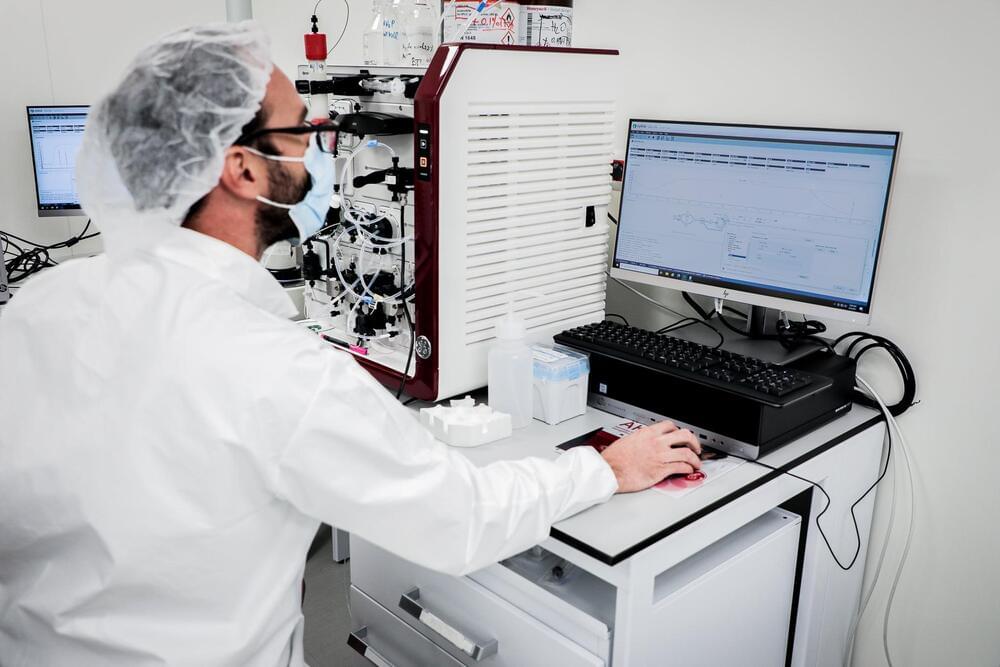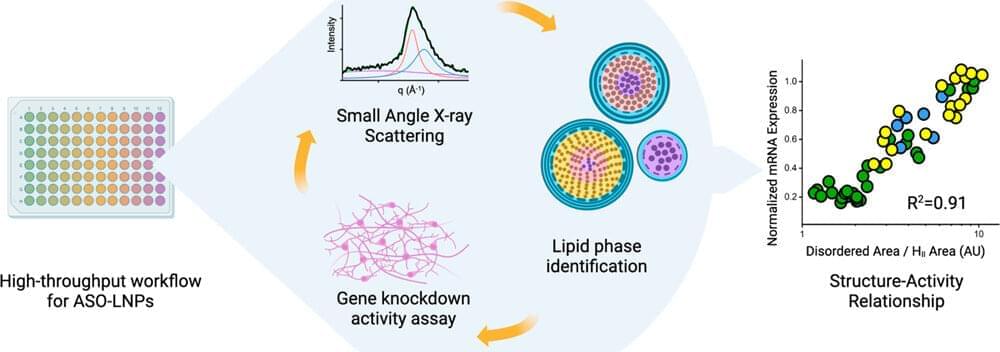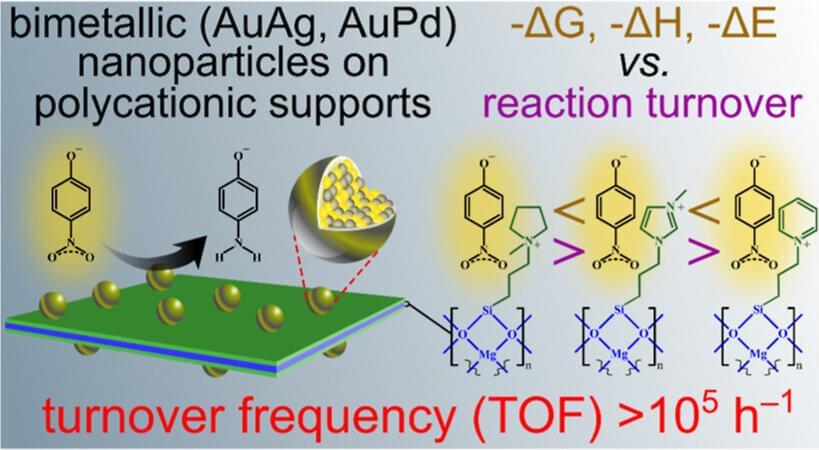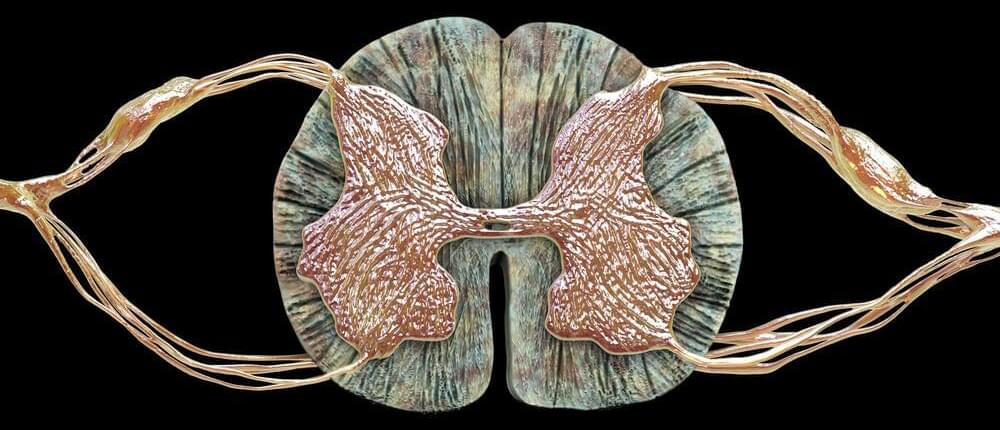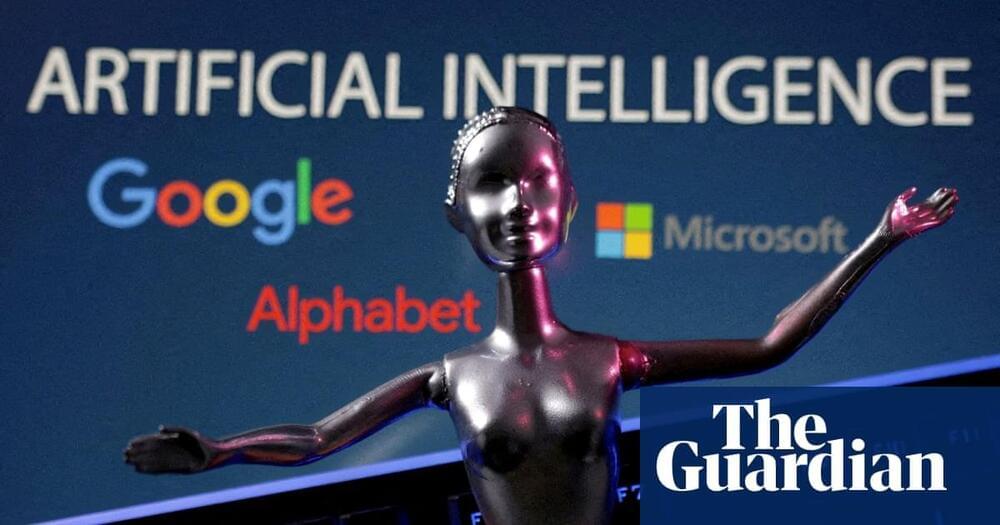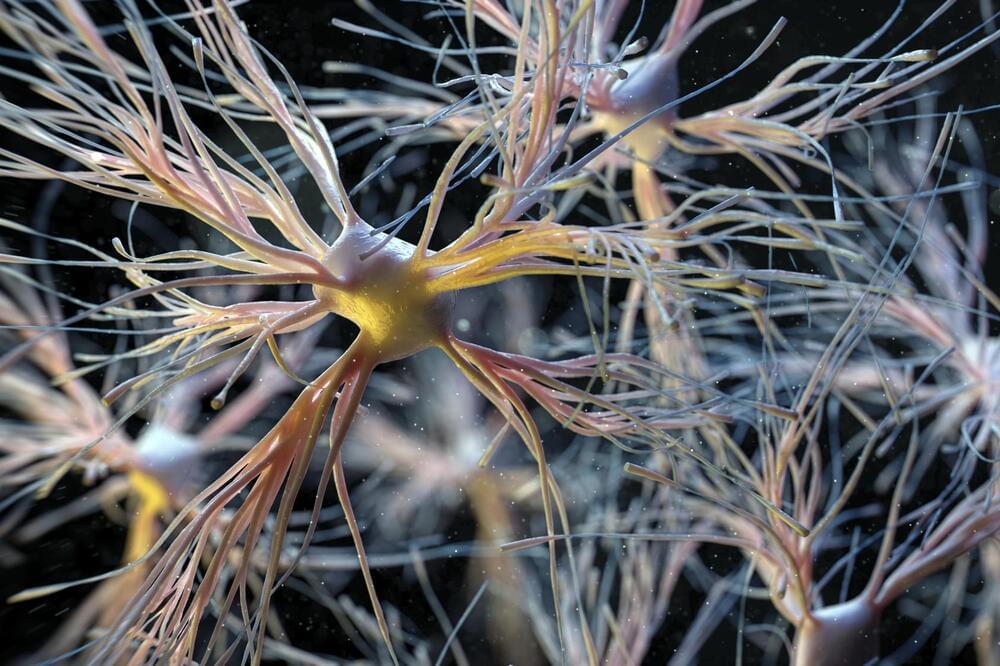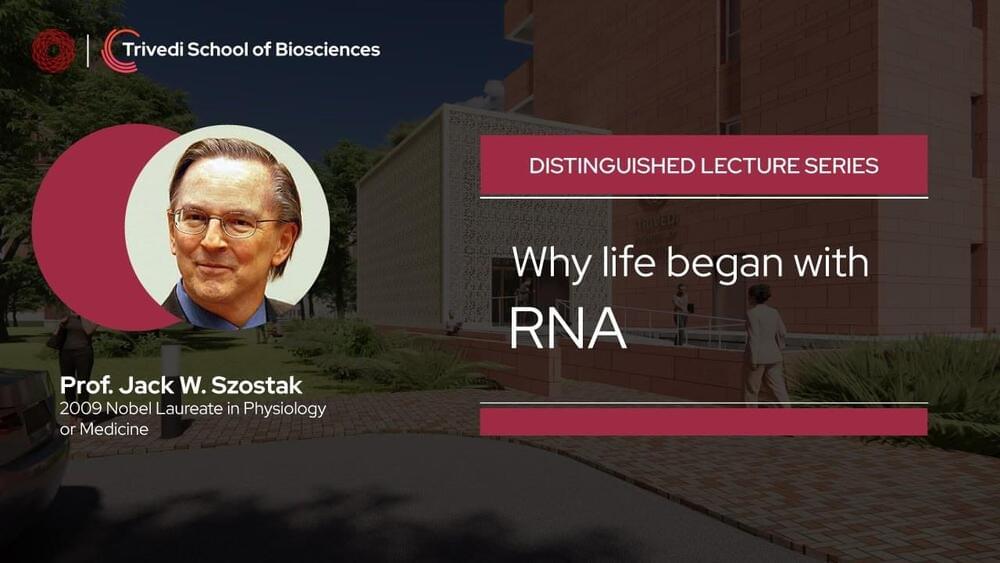Jul 25, 2023
Potent anti-cancer therapy created using ‘click chemistry’
Posted by Dan Breeden in categories: biotech/medical, chemistry
A potent anti-cancer therapy has been created using Nobel prize-winning “click chemistry,” where molecules click together like LEGO bricks, in a new study by UCL and Stanford University researchers.
The study, published in Nature Chemistry, opens up new possibilities for how cutting-edge cancer immunotherapies might be built in future.
The research team created an anti-cancer therapy with three components: one targeting the cancer cell, another recruiting a white blood cell called a T cell to attack the cancer cell, and a third knocking out part of the cancer cell’s defenses.
